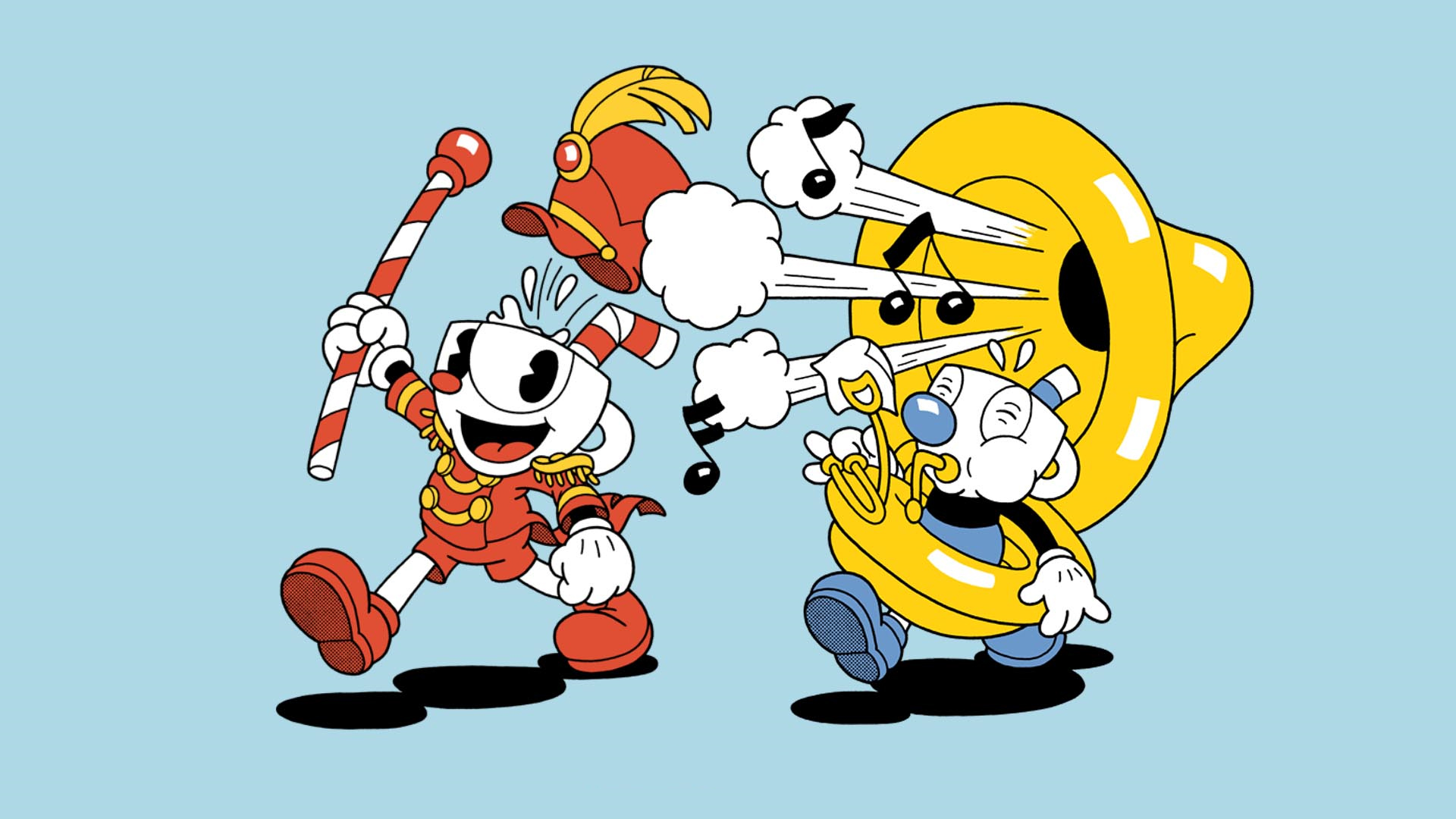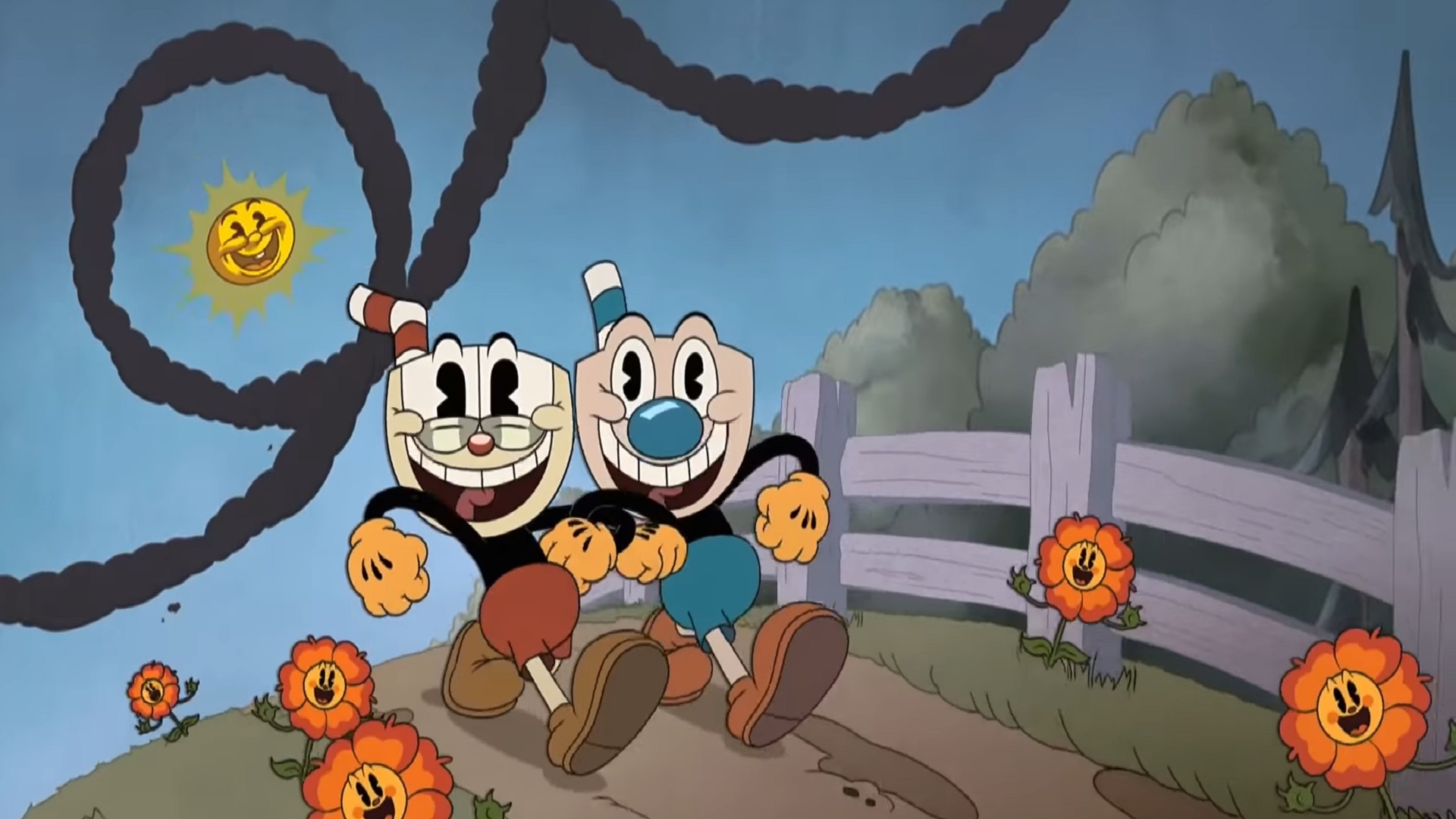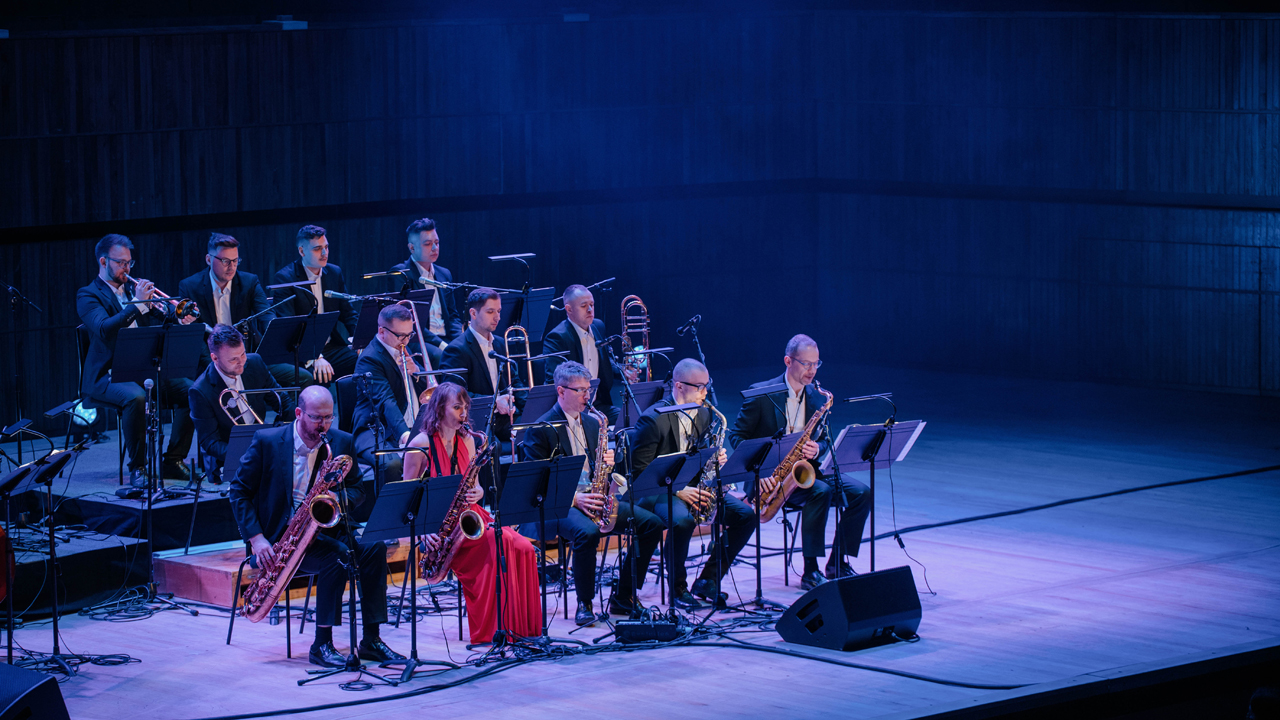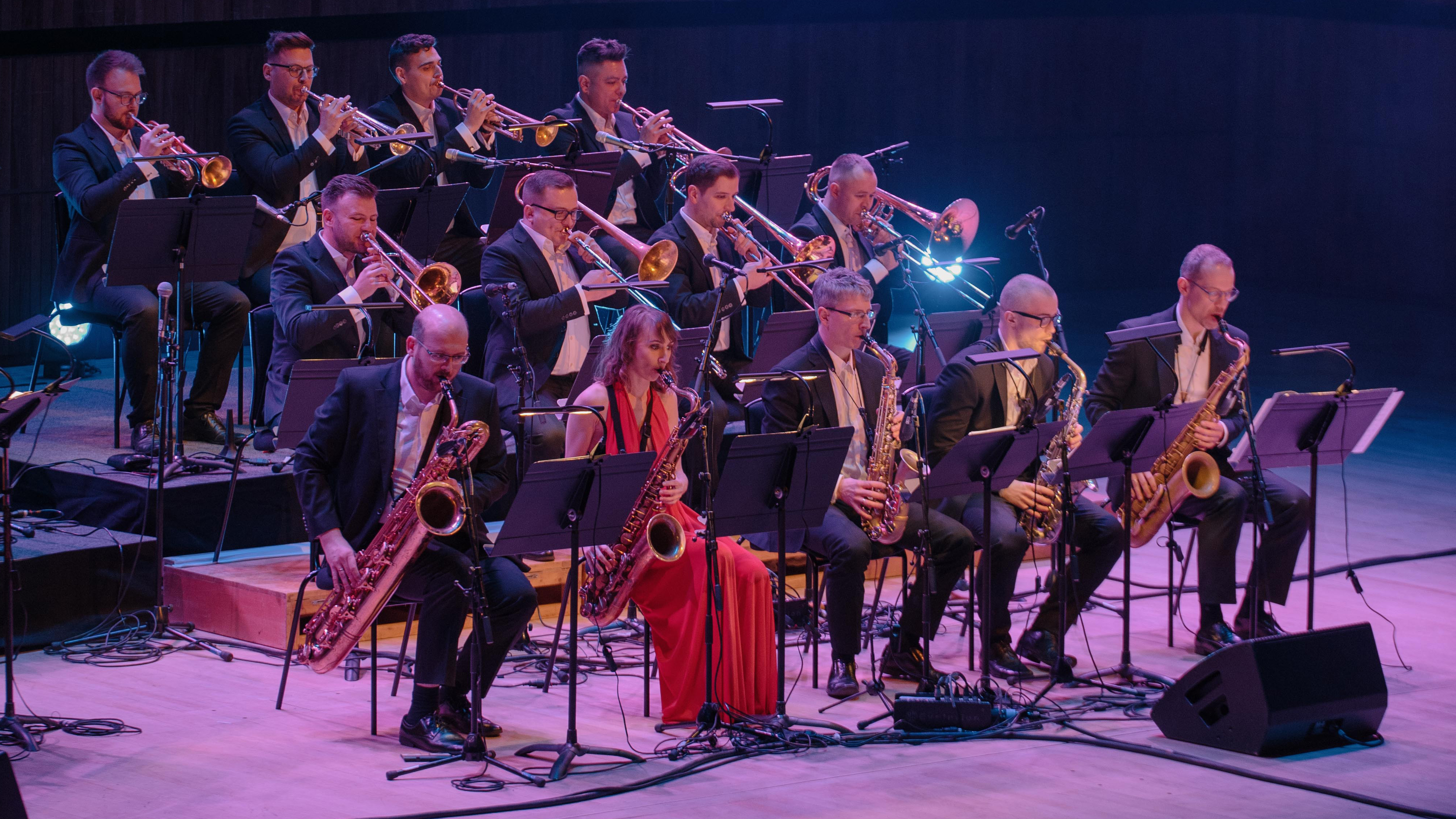We went to see the Cuphead soundtrack played by a live band – and it was weirdly moving
The Game Music Festival came to London for the first time

I’m not a gamer. Sure, I’ll kick your ass at MarioKart, and I like Stardew Valley as much as the next person, but I wouldn’t consider myself part of the gaming community.
Nevertheless, when I had the opportunity to see the Cuphead soundtrack performed by a live big band, I jumped at the chance. Two years of pandemic meant I hadn’t been able to see live music for a while (save for a Smiths cover band a few weeks before), and the Cuphead soundtrack was unlike any game music I’d heard before when it was released in 2017.
The run-and-gun title (and now Netflix cartoon) sees protagonist Cuphead and his brother Mugman fight through a series of levels and boss battles in a quest to repay their debt to the devil. The art style was inspired by the golden age of American animation, taking its cues from early Disney and Fleisher studio flicks; think Betty Boop meets Fantasia and you’re on the right track.

In keeping with the early 20th century aesthetic, the music of Cuphead is inspired by the most popular music style of the time: big band jazz. As composer Kris Maddigan told us when we chatted to him via email following the performance, the biggest influences on the soundtrack were Duke Ellington and Scott Joplin.
“Chad and Jared Moldenhauer (the creators of Cuphead) knew from very early on that they wanted a 30s era big band for the soundtrack,” Maddigan explains. “Once the game got a lot of buzz after E3 in 2015, they knew that they would be going all in, and part of that included using real musicians for the entire soundtrack,” he explains.
Rather than using looping cues, the Cuphead soundtrack is made up of no less than 51 individual tracks, all recorded by a real live big band – something the creators and Maddigan agreed was “most authentic to the style” of the game. “Having music that looped and built with each boss wasn’t as necessary as trying to create a good vibe,” says Maddigan.
In the Cuphead soundtrack, you’ve got a body of work composed of standalone songs that have already been recorded by a real band; so what better way to experience it than to hear it played live in one of the best concert halls in London, the Royal Festival Hall?
Sign up for breaking news, reviews, opinion, top tech deals, and more.
Crossing borders

The Cuphead soundtrack was brought to the stage as part of the Game Music Festival, alongside a performance of the music from Ori and the Blind Forest. Having been held in Poland since its inception in 2018, 2022 marked the first time the festival was taken overseas, something its founders describe as “a dream come true”.
As we settled into our seats in the cavernous Royal Festival Hall, we felt a little apprehensive. Covid-19 meant that it had been a long time since we’d been in such a big venue (audience members were still politely encouraged to wear masks), and longer still since we’d seen anything resembling jazz.
What if it was (God forbid) boring? Long gone were the days when I could happily sit down to an hour-and-a-half of experimental acid jazz and clap for an encore when it was over – and even then, when I was wide-eyed and keen to experience every kind of music in the flesh, it was a struggle to sit still and really listen.
I needn’t have worried. What followed was one of the most fun and laid-back afternoons I’ve enjoyed in the past few months, and a strangely touching experience that I’ll remember fondly for years to come.
The performance was compèred by Italian music producer, orchestral composer and YouTuber Alex Moukala, who noted that we were about to hear a Polish band – the Bartosz Pernal Orchestra – play new arrangements of a Canadian composer’s music. It was to be a veritable smorgasbord of global artistic collaboration.
Days before the concert, Russia had invaded Ukraine, which made this spirit of collaboration felt even more poignant. Indeed, at one point in the show, band leader Pernal dedicated a slower, more somber number to the Ukrainian people.
Virtuosic performances
The rest of the show, however, was lively, in-your-face, and totally celebratory, with virtuosic saxophone solos that left me breathless, Count Basie-style call and response motifs, and walking double bass that held every piece together.
Game music and film scores are bringing people to the concert hall who might not normally end up there.
Kris Maddigan, Composer
The band’s pianist was a particular joy to watch, as his hands danced across the keys like spiders, flanked by the unctuous harmony of the brass section and huge stabs of sound. While there was plenty of ‘straight’ big band jazz to sink my teeth into, one of my favorite songs was Floral Fury, which combined Latin rhythms, double octave piano chords, and syncopated rimshots.
“The influence of Cuban music on jazz and big band dates back to the early 20th century,” explained Maddigan. “Floral Fury was very much inspired by the songs of Carmen Miranda and the great Carnival parades of Brazil.”
Echoes of that South American flavor can be found throughout the soundtrack, with tracks like Honeycomb Herald taking inspiration from Caravan, written by Juan Tizol and Duke Ellington, and another Ellington tune, Conga Brava, informing the sound of Pyramid Peril.
Making old feel new

It’s a shame there was no onstage imagery to go along with the live music. While the musicians themselves were more than entertaining enough to watch, a visual link back to the game the music came from would have served as an excellent reminder that what we were watching wasn’t a rehash of old Count Basie tunes – this was a 21st-century video game soundtrack.
Still, the music absolutely stands up on its own – and that’s a testament to how unique Maddigan’s work on Cuphead really is. Sure, there are plenty of game soundtracks influenced by the western classical canon – Final Fantasy springs to mind – that translate very well to the concert stage. However, there are few that we can think of that take such direct inspiration from the big band music of the 30s, nor many that work as standalone songs.
It could well introduce new fans to the music of that era, as Maddigan pointed out: “The most important thing for me is knowing that the Cuphead soundtrack is getting a whole new generation into the great big band and ragtime music from the first half of the 20th century.”
Whatever the genre, video game soundtracks are a great vehicle for introducing gamers to music styles they may not have previously considered listening to.
“Game music and film scores are bringing people to the concert hall who might not normally end up there,” added Maddigan. “That can only be considered a very good thing.”

Olivia was previously TechRadar's Senior Editor - Home Entertainment, covering everything from headphones to TVs. Based in London, she's a popular music graduate who worked in the music industry before finding her calling in journalism. She's previously been interviewed on BBC Radio 5 Live on the subject of multi-room audio, chaired panel discussions on diversity in music festival lineups, and her bylines include T3, Stereoboard, What to Watch, Top Ten Reviews, Creative Bloq, and Croco Magazine. Olivia now has a career in PR.